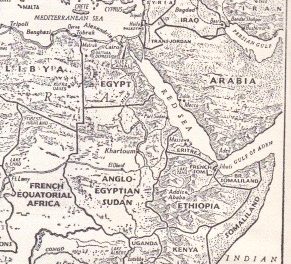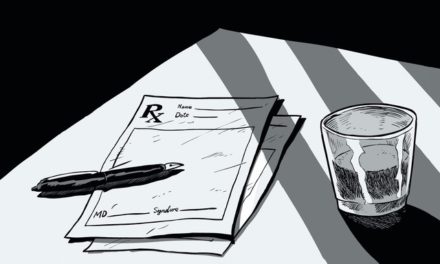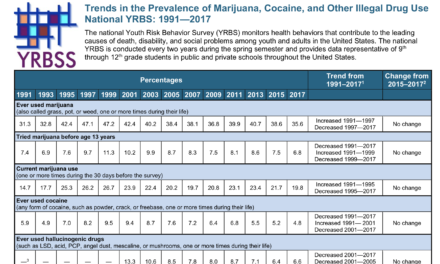In September a Ken Burns 10-parter is going to make the US role in Vietnam an “issue” again for a little while. Pundits and politicians will reflect, meaninglessly, “We never really had a national conversation about Vietnam.” Pot partisans will repeat, single-mindedly, “If anybody deserves to use cannabis for PTSD, it’s Vietnam vets.” Interviewers will say to vets, obsequiously, “Thank you for your service.” How come they don’t say that when they interview nurses? Anyway, here’s some background on what that war was about. —FG
1. From Typee by Herman Melville
It was in the summer of 1842 that we arrived at the islands; the French had then held possession of them for several weeks. During this time they had visited some of the principal places in the group, and had disembarked at various points about five hundred troops. These were employed in constructing works of defense, and otherwise providing against the attacks of the natives, who at any moment might be expected to break out in open hostility. The islanders looked upon the people who made this cavalier appropriation of their shores with mingled feelings of fear and detestation. They cordially hated them; but the impulses of their resentment were neutralized by their dread of the floating batteries, which lay with their fatal tubes ostentatiously pointed, not at fortifications and redoubts, but at a handful of bamboo sheds, sheltered in a grove of cocoanuts! A valiant warrior doubtless, but a prudent one too, was this same Rear-Admiral Du Petit Thouars. Four heavy, double-banked frigates and three corvettes to frighten a parcel of naked heathen into subjection! Sixty-eight pounders to demolish huts of coconut boughs, and Congreve rockets to set on fire a few canoe sheds!
… The expedition for the occupation of the Marquesas had sailed from Brest, and the secret of its destination was solely in the possession of its commander. No wonder that those who contemplated such a signal infraction of the rights of humanity should have sought to veil the enormity from the eyes of the world. And yet, notwithstanding their iniquitous conduct in this and in other matters, the French have ever plumed themselves upon being the most humane and polished of nations. A high degree of refinement, however, does not seem to subdue our wicked propensities so much after all; and were civilization itself to be estimated by some of its results, it would seem perhaps better for what we call the barbarous part of the world to remain unchanged.
One example of the shameless subterfuges under which the French stand prepared to defend whatever cruelties they may hereafter think fit to commit in bringing the Marquesan natives into subjection is well worthy of being recorded. On some flimsy pretext or other Mowanna, the king of Nukuheva, whom the invaders by extravagant presents cajoled over to their interests, and move about like a mere puppet, has been set up as the rightful sovereign of the entire island–the alleged ruler by prescription of various clans, who for ages perhaps have treated with each other as separate nations. To reinstate this much-injured prince in the assumed dignities of his ancestors, the disinterested strangers have come all the way from France: they are determined that his title shall be acknowledged. If any tribe shall refuse to recognize the authority of the French, by bowing down to the laced chapeau of Mowanna, let them abide the consequences of their obstinacy. Under cover of a similar pretense, have the outrages and massacres at Tahiti the beautiful, the queen of the South Seas, been perpetrated.
The control tactic that Melville describes so clearly —capitalists from overseas installing in power self-serving local bigwigs — is still used today as they loot the southern hemisphere’s natural resources.
2. From Ho Chi Minh, The Missing Years by Sophie Quinn-Judge
…He had worked for a wealthy family in Brooklyn in 1917 and 1918… A remark made to the US peace activist David Dellinger reinforces the notion that his stay in America came after 1916. Ho Chi Minh told Dellinger that when he was in America, he heard Marcus Garvey speak in Harlem. Garvey, the leader of the ‘return to Africa’ movement, did not arrive in the U.S. from his native Jamaica until 1916. In 1917 and 1918 he spoke frequently in Harlem on issues of racism, which had flared up in the US following the 1915 reappearance of the Ku Klux Klan. Ho Chi Minh published an article about the Ku Klux Klan in 1924, which described the practice of lynching in the American South.
…The official reason for Ho’s invitation to Russia was the first International Peasants’ Conference which opened on 10 October 1923… Ho did not waste his speech of greeting on formalities. He launched directly into a quick exposition of the situation of the peasants of the French colonies. ‘You are peasants and farmers of Europe and America. You are exploited as proletarians,’ he told the delegates.’But we others in the French colonies are doubly exploited as proletarians and as conquered races. A white owner can come and make a request to the government, and whole villages will be expropriated, villages which our fathers and ancestors inhabited and which we still cultivate.’
… Land confiscation by French capitalists was at the root of their exploitation. In Vietnam, he said, ‘When the French conquered this colony, the war drove peasants out of their villages. As a result, when they returned home, they found their land had been occupied by concessionaires, following the victorious army. They handed out land which for centuries had been populated and worked by the natives.’ He painted a dark picture of abuse, worse of all for the peasants of equatorial Africa, where ‘the old folk, women and children are imprisoned, mistreated, tortured, starved, martyred and sometimes murdered.’
[Vietnam also had a growing number of industrial workers, including 30,000 employed by the Portland Cement Company.] These workers toiled in appalling conditions, according to Ho, for 12 to 14-hour days, with longer days on the plantations. There was no question of pensions or compensation for accidents; the workers had no right to strike. Worse still was the fact that there existed in Vietnam three categories of forced labor, which Ho described as ‘three categories of slavery.’ First were the prisoners who were loaned to factories or plantations —they worked handcuffed and yoked at the neck. Next were those eligible for the corvée or labor contribution —all Vietnamese between the ages of 18 and 60. The number of days of free labor to be furnished was fixed only in theory, Ho said; ‘In practice, it is indefinite. When there is a canal to be drug or a road to build or repair,’ he explained, ‘there is a general mobilization which can last several months.’ Third were the laborers recruited to be sent to work in France’s Pacific colonies, where Ho claimed they were sold to planters and European factory owners.
3. From The Devil and John Foster Dulles by Townsend HoopesIn a major policy address before the Overseas Press Club of America, Dulles blamed Ho Chi Minh for “attempting to prevent the orderly development of independence.” Then he turned to developing the theme of Indochina as a vital economic and strategic asset of the free world. It is important, he argued, not alone because it provides vital raw materials, but because it sits astride “the most direct and best developed sea and air routes between the Pacific and South Asia…”Although both France and Britain pressed Diem to open up consultations with the Vietnminh in July 1955 (as called for in the Geneva Agreements), looking toward the organization of all-Vietnam election in 1956, Diem refused to do so. Washington’s advice to Diem was, in effect, that he not openly refuse the elections, but that he demand conditions which excluded the possibility that he would lose them… As Dulles said, “While we should certainly take no positive steps to speed up present process of decay of Geneva Accords, neither should we make the slightest effort to infuse life into them.” As the election date approached, Diem remained adamantly opposed, insisting that, as South Vietnam had not signed the accords, he was not bound by them… The United States backed Diem. When Ho Chi Minh, feeling betrayed, reopened the civil war two years later, the United States, alone among the Western powers or indeed the SEATO powers, felt committed to uphold the regime in Saigon.





